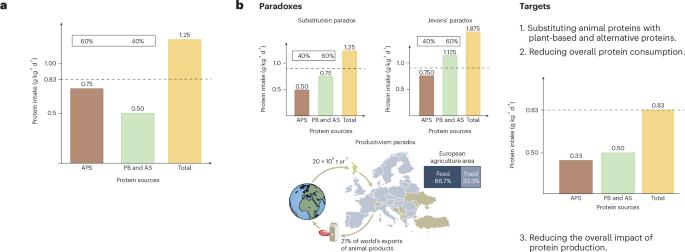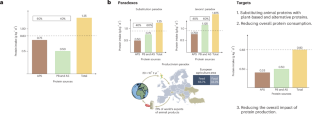The paradoxes of the protein transition maintain existing animal production and consumption systems
IF 23.6
Q1 FOOD SCIENCE & TECHNOLOGY
引用次数: 0
Abstract
The shift towards reduced consumption of animal-based products, referred to as the protein transition, is increasingly viewed as an opportunity to drive sustainable food systems transformations. Here we explore three central paradoxes of the protein transition. The first underscores the focus on substituting animal proteins with alternative sources, rather than reducing overall protein consumption. The second focuses on the search for new protein sources, rather than tackling overconsumption and overproduction. The third involves the continued export of animal proteins from Europe, a practice defended under the guise of food security, efficiency and comparative advantage. These narratives dominate public discourse, justifying existing production and consumption patterns, shaping perceptions and influencing decisions and policies that impact the future direction of our food systems. Given the influence of stakeholders’ narratives in the transition, we advocate for a holistic and systemic perspective that transcends isolated and quick-fix solutions to foster coherent strategies to advance the protein transition. Moving away from animal-based protein consumption requires major changes in how food systems operate. This Perspective explores three paradoxes driving the transition and alternative, interconnected approaches to support protein system sustainability.


蛋白质转型的矛盾之处在于维持现有的动物生产和消费体系
人们越来越多地将减少动物性产品消费的转变(即蛋白质转型)视为推动可持续粮食系统转型的契机。在此,我们将探讨蛋白质转型的三个核心矛盾。第一个悖论强调的重点是用替代来源替代动物蛋白质,而不是减少蛋白质的总体消费量。第二个悖论侧重于寻找新的蛋白质来源,而不是解决过度消费和过度生产问题。第三种是继续从欧洲出口动物蛋白,这种做法打着粮食安全、效率和比较优势的幌子。这些说法主导着公共话语,为现有的生产和消费模式辩护,塑造观念,影响决策和政策,从而影响我们粮食系统的未来发展方向。鉴于利益相关者的言论在转型中的影响,我们主张从整体和系统的角度出发,超越孤立和速效的解决方案,促进协调一致的战略,推动蛋白质转型。
本文章由计算机程序翻译,如有差异,请以英文原文为准。
求助全文
约1分钟内获得全文
求助全文

 求助内容:
求助内容: 应助结果提醒方式:
应助结果提醒方式:


